In this past Sunday’s sermon on Genesis 4:17-26, I made reference to a piece written by James Jordan entitled, The Enoch Factor. Here is that piece for your reading and consideration.
The Enoch Factor
by James B. Jordan
After Cain murdered Abel and was driven out of the land of Eden, we read that he had a son whom he named Enoch, and that he founded a city that he also named Enoch (Genesis 4:17). The city, we are told, was named for his son.
This was the first city ever built, but it will not be the last. The last city is the New Jerusalem, built by God the Father, and “named” for His Son. As Enoch was prince of the city of Enoch, so Christ is the Prince of the holy city.
The first city was built on the blood of a murdered brother. The last city is also built on the blood of a murdered younger brother, the Ultimate Younger Brother, Jesus Christ. Throughout the Bible we see younger brothers replacing older brothers because the older brother is unfaithful: Seth replaced Cain, Isaac replaced Ishmael, Jacob replaced Esau, Joseph replaced his brothers, David replaced his, etc. Jesus was the last Adam, the final younger brother, and His death is the foundation for the City of God.
Enoch did not plant a garden and then let it grow into a city. In this he was setting a course different from God’s. If we follow the history of the garden concept in the Bible, we find that Abraham and the patriarchs worshiped at oasis-sanctuaries characterized by altars, trees, and wells. Later, these elements were organized into a formal tent-centered sanctuary, the Tabernacle, as a place of worship. Still later, the Tabernacle grew into the Temple, and the Temple is set in a city, Jerusalem. In this way, God grows the city out of the garden. God grows a civilization up from the roots of agriculture.
Enoch started with a city. That means he started with a tyranny. The city becomes a place that conquers and enslaves the “peasants” and “serfs” of the agricultural countryside. Because the tyrant-city has no root it cannot last, but while it lasts it is brutal.
Enoch’s sin was like Adam’s. God had told Adam and Eve that every tree was for them to eat (Genesis 1:29). Thus, they could figure out that the forbidden tree was only temporarily forbidden. Their sin was that they would not wait for God’s permission. Similarly, Enoch was unwilling to work patiently and grow a city out of a garden. He jumped forward and tried to seize the final fruits of generations of labor: the glory of a city.
For a variety of reasons, the heathen often make more rapid initial cultural gains than do the righteous. The heathen are willing to enslave other people to work for them. The heathen don’t take one day in seven to rest. The heathen expend no psychological energy in repentance and striving against sin. Thus, the heathen get there first. This is what I call “the Enoch Factor.”
We see the Enoch Factor in Genesis 4. Not only did Cain build the first city, but his descendants became “fathers” (experts, teachers) of the sciences of animal husbandry, music, and metallurgy. The first poem in the Bible is put on the lips of a descendant of Cain (Genesis 4:20-24).
The Enoch Factor means that very often great advances in technique (not in philosophy) come from pagan sources. Usually the heathen get there first, and then the believers come after. Practically speaking, what does this mean?
First, it means that Christians must not be overwhelmed by the technological and artistic prowess of the heathen. In our society today, the best artists and technicians are almost never believers. We know from the Bible, however, that they have no root and will burn out. Our city is built more slowly, but it will endure forever. As history matures, Christianity will more and more become culturally dominant, and more and more we will see Christians “getting there first” in the arts and sciences.
Second, it means that Christians often must learn technique from the heathen. How foolish would it have been for Israelite herdsmen to refuse to manage their animals well, just because it was pagan Jabal who developed many fundamental techniques! And how sad if David had refused to learn music because Jubal got there first!
Now think about what this may mean. Often pietistic Christians are critical of their brethren in the arts because artistic Christians rub shoulders with degenerate heathen. Indeed, a Christian artist may have to apprentice himself to a degenerate heathen. Are we mature enough to support our Christian brethren in this?
The arts are very powerful, because art enhances belief by means of emotion. Thus, the Christian who studies with Jubal must be very careful and be sure to keep separate the study of technique from the adoption of a philosophical outlook. Still, greater is He that is in us than he that is in the world, and the Christian is called to take dominion in all areas of life. We can learn from the world, and should be bold to do so.
The proper context for study of the techniques of Enoch is the Church. We need the teaching and sacramental community of a local church as a support base, a garden, the whole time we are studying in the world. Apart from such a context, we run the danger of being sucked in by the philosophy of Enoch.
Originally published:
OPEN BOOK
Views & Reviews
No. 21 Copyright (c) 1994 Biblical Horizons May, 1994
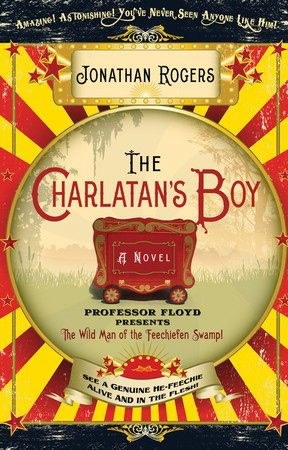
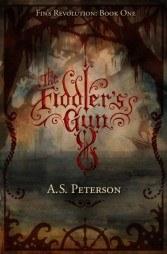
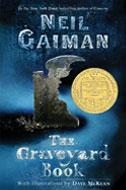
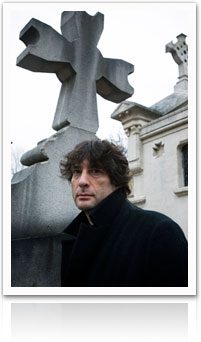

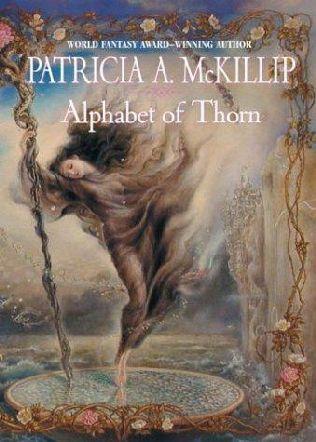
 Finally delving into Renee Girard’s I See Satan Fall Like Lightning. Only two chapters in, I am fairly confident I am missing quite a bit, as this is the kind of book you have to marinate in for a while. Nevertheless, I found this quote particularly thought-provoking:
Finally delving into Renee Girard’s I See Satan Fall Like Lightning. Only two chapters in, I am fairly confident I am missing quite a bit, as this is the kind of book you have to marinate in for a while. Nevertheless, I found this quote particularly thought-provoking: In his excellent little book, In the Beginning. E.J. Young expounds upon Satan’s deception in Genesis 3, and provides some insights that are profoundly applicable to the situation I described above. He argues that Satan is impugning motives. “He sees that Eve is listening to him, and so he goes on to say: ‘For God knows that in the day that ye eat thereof, your eyes will be opened, and ye shall be as God, knowing good and evil.’ There is Satan’s reason. He is hitting below the belt, as it were. Satan works in that way. I do not think we can make a greater mistake than to assume that Satan comes with an objective argument.”
In his excellent little book, In the Beginning. E.J. Young expounds upon Satan’s deception in Genesis 3, and provides some insights that are profoundly applicable to the situation I described above. He argues that Satan is impugning motives. “He sees that Eve is listening to him, and so he goes on to say: ‘For God knows that in the day that ye eat thereof, your eyes will be opened, and ye shall be as God, knowing good and evil.’ There is Satan’s reason. He is hitting below the belt, as it were. Satan works in that way. I do not think we can make a greater mistake than to assume that Satan comes with an objective argument.”